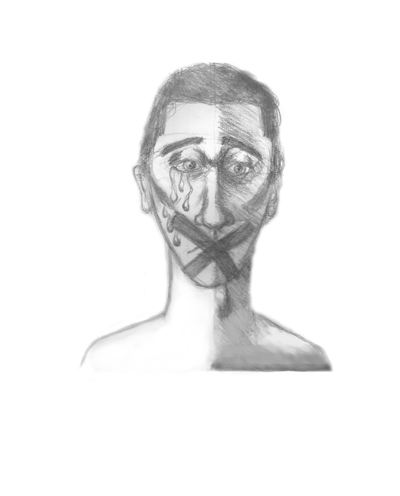
I was 3 years old when I was first made fun of by a teacher and my classmates. I wanted to use the pink crayon over the blue crayon, and my preschool teacher told the class her thoughts on gender identity. “Boys are blue, and girls are pink,” she said.
If the teacher would have known that the entire class would point and laugh at me, I’m quite certain she would have thought twice before teaching such a lesson. I was occasionally physically pushed around on the playground because my classmates couldn’t believe that I wanted to use the pink crayon. My chances of becoming the so-called “cool kid” diminished before I knew how to count to 10.
As preschool ended, I hoped that it was all going to be over, but things got worse. Elementary school continued to be painful. My classmates pulled pranks on me, such as putting mice in my backpack and posting “kick me” signs on my back.
They often played the telephone game, spreading rumors about me. I chose to isolate myself from everyone, leaving me alone with my emotions.
Stomp Out Bullying, an anti-bullying organization, reported that in 2010, about 1-in-7 students in grades K-12 were victims of bullying.
“Bullying is usually defined as someone exerting power over another individual,” said professor Leslie Echols. who teaches classes on child and adolescent development. “In the past, it was believed that bullying was the result of someone feeling powerless or insecure and wanting to dominate someone else in order to feel better about him or herself.
Now we know that this is often not the case. Some bullies have very high self-esteem and simply enjoy the social power that comes from intimidating others.”
My bullies were cold for enjoying the feeling of leaving my soul to bleed for days and months. I was chained down and forced to embrace my bullies while they attacked me where it truly hurt. I did not know what to do.
There were numerous instances in which I was afraid for my life and became one of the 160,000 students, according to Stomp Out Bullying, who prefer to stay at home because I was afraid of being bullied. Bullyingstatistics.org reported that 282,000 students are physically attacked in secondary schools each month.
I was beaten up while my seventh grade math class was in session. The teacher was facing the blackboard, the bullies eventually ganged up on me since they were annoyed of my “basket case” ways.
Weeks before my eighth grade graduation, several bullies presented me with a farewell. They had discovered that one of my family members is gay. One bully opted to attack me with a black sharpie and write the word “faggot” all over my physical education uniform, forcing me to pretend like nothing had happened and making me believe that having gay family members was unacceptable.
I felt like my bullies were constantly playing a soccer match with my consciousness. By the time I reached high school, I was cutting, popping over-the-counter painkillers, and developed an eating disorder. I relied on those behaviors to lead me through the storms, but they left me feeling emptier than ever.
I was alone and never said anything about being bullied because I felt worthless. I remember going home one day pretending everything was alright. My mom would ask me, “How was school?” I bolted past her without answering as tears ran down my face. I hid for hours in the bathroom as I contemplated committing suicide.
Victims of bullying are between two to nine times more likely to consider suicide than nonvictims, according to a study by Yale University. Bullyingstatistics.org reported that suicide is the third leading cause of death among young people, resulting in about 4,400 deaths per year; for every suicide among young people, there are at least 100 suicide attempts.
Being regularly abused by your peers can make you feel powerless and unloved. It is easy to blame yourself for the cruelty of others when you are completely alone and your self-esteem is not healthy. It is important for victims of bullying not to internalize their oppression.
“If you are bullied, it may not have anything to do with who you are. A lot of times it’s just a matter of being in the wrong place at the wrong time,” Echols said.
Research shows that having at least one close friend is the best protection against bullying, according to Echols. She said that it is important to seek advice from parents or other trustworthy adults, like school counselors or other professionals.
I was lucky to have one person in my life who encouraged me to be strong. After being bullied for so long, I was afraid to face reality until my grandmother gave me support and became a true friend. I never got the opportunity to thank her for saving my life.
I am fortunate to be able to have faculty members, friends and family who continue to take their time to share words of wisdom with me, because I know life has given me a second chance. Before transferring to CSUN from a community college, an anthropology professor told me something that I still remember today. “Domari nolo,” she said. “I will not be controlled.”
Being bullied is one of the toughest obstacles anyone can encounter and it can tear people down. It is important to remember that bullies only have the capability to feed on our weaknesses and not on our strengths.
There are times I still fear living life because in the back of my mind, I expect trouble ahead. I want to prove to myself that I can overcome my victimhood of bullying, and that keeps me going. And as the calm comes after the storm, I know my bullies’ scare tactics diminish as I become a warrior in my unique way.





